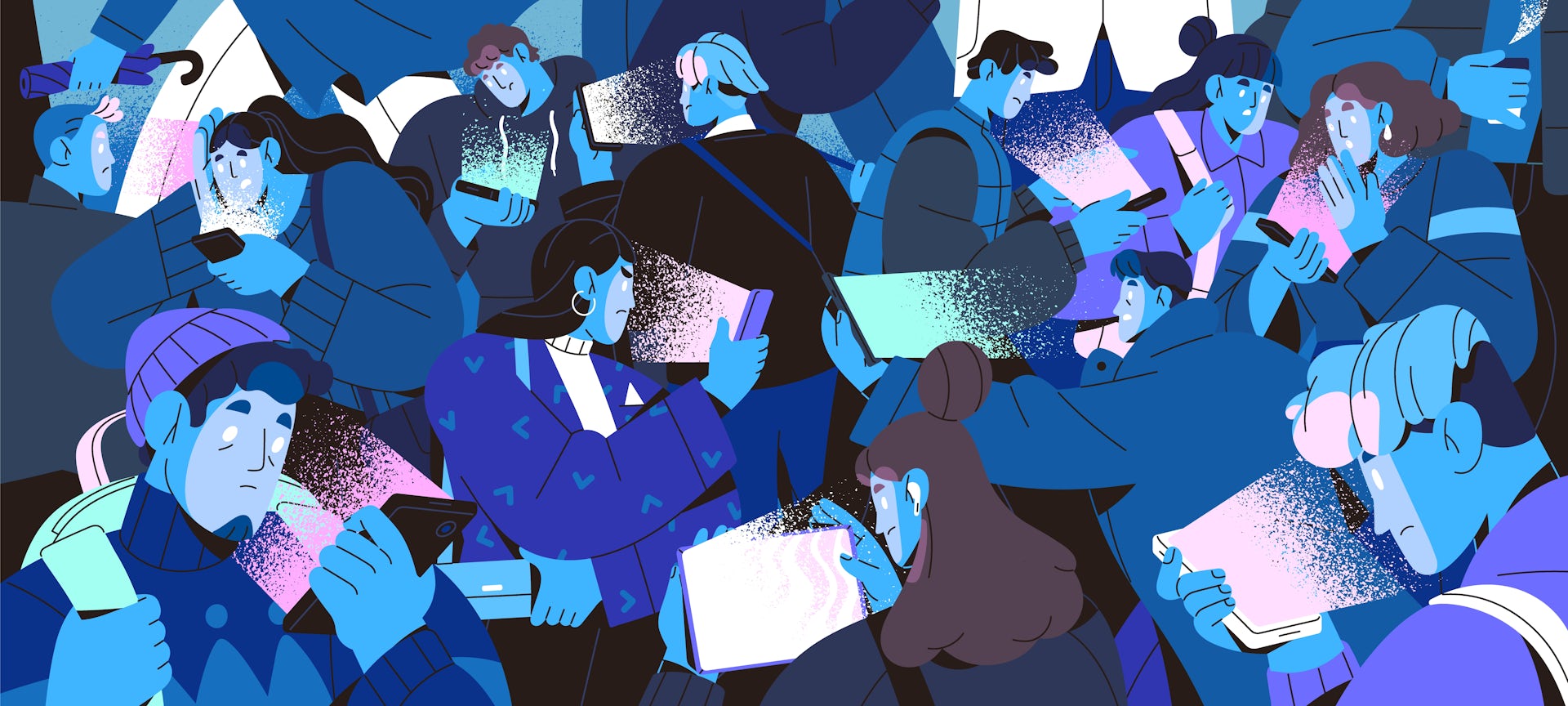Devil versus angel: When do they shift into action in the face of temptation?
As we struggle to avoid temptations throughout the day, we often rely on willpower and self-control to back impulses. New research suggests a different way to think about this internal battle.

For breakfast this morning, I had to choose between a chocolate doughnut versus a bowl of oatmeal. (The doughnut was delicious.) Throughout the day I will have to fight off urges to check Twitter, skip the gym, and watch “Game of Thrones” late into the night. At every moment, temptation beckons.
Giving in to these siren calls can be unhealthy. It wrecks our aspirations, longevity and moral compass. What are we to do?
In movies and cartoons, the struggle for self-control is often portrayed as the devil on one shoulder, encouraging impulsive behavior, and the angel on the other, urging control.
The metaphor of the devil and angel fits well with how psychologists have explained self-control: the push and pull between our impulsive, emotional system (that draws us toward indulgences) and our deliberative, logical system (that considers the long-term).
But psychologists have also argued that these two systems do not act simultaneously. We conducted a series of new studies to untangle when the devil and the angel show up once you’re confronted with a temptation.
How much rides on how tough that angel is?
The consensus among psychologists has been that when we see that doughnut, our impulsive system acts first, quickly giving rise to automatic urges. The more controlled system (sometimes) intervenes later in an effort to inhibit the temptation. From this standpoint, the devil arrives as soon as there is trouble to be had, and the angel arrives late to the game and must conquer the devil.
This implies that self-control depends largely on the angel. And, in fact, modern society champions the power of the will – the idea that the most successful people are those who can control and override their animal urges so that reason and rationality can prevail. This suggests very clear remedies for personal failings: greater willpower and a tougher psyche.
But is this true?
In our new research in press at Psychological Science, we used a computer mouse-tracking tool to better understand how people make self-control decisions. With over 650 volunteers, we recorded how people moved their computer mouse while they decided between short-term temptations versus long-term goals: healthy versus unhealthy food.
Clicking through a temptation minefield
Like a modern-day version of a Ouija board, this mouse-tracking tool can reveal a person’s inner cognitive processes while he or she makes choices. We asked our subjects to simply click on the option that they should eat in order to be healthy.
Our subjects overwhelmingly clicked on the healthy options – but we were not interested in their ultimate choice. We wanted the information contained in how they got there. As they clicked on the healthy option, how closely did they veer their mouse toward the temptation along the way?

It turns out that this spatial “tell” predicted their real choices. Those who had strayed closer to the temptations were more likely to choose a candy bar over an apple at the end of the study when offered an actual snack.
The way that people moved their mouse also revealed how they made decisions. Rather than the devil beckoning us to temptation early before our angels of higher reason can intervene, it appears that both temptations and long-term concerns compete from very early on. If we do have two conflicting systems – a fast, impulsive system and a slow, deliberative system – we would expect people’s mouse movements to initially veer strongly toward the temptation, before reversing course back toward the goal.
Contrary to this, however, we find this “impulse-then-inhibit” trajectory occurs in just a minority of trials in which people are successful at self-control.
Much more common were movements that were smooth and curved – ones that sometimes drifted toward the temptation, but gradually head back toward the goal.
In other words, people’s successful decisions do not (usually) unfold as first an impulse toward the temptation and then effortful inhibition. Instead, our decisions appear to be simultaneously informed by both temptation and goal.

Willpower can’t do it all
Despite the prevailing wisdom, then, people with good self-control are not those who are skilled at resisting impulses, but those who are less likely to experience full-blown impulses in the first place. These data suggest that the common idea of a quick devil followed by a slow angel may not reflect how successful decisions actually unfold in the majority of cases.
This new work shows that a focus on willpower and inhibiting impulses may often be too little too late. Instead of steeling oneself against temptation, it may be more fruitful to put in work beforehand – by focusing on the small decisions that can help us avoid tempting impulses altogether. Other psychologists, such as Ayelet Fishbach and her colleagues, have argued for exactly this approach of preventative control. For example, one might avoid situations that are likely to trigger impulses, like the candy aisle.
We of course cannot create a world without any temptations, but we might consider more seriously a preemptive strategy rather than trying only to increase our willpower. By the time the devil appears on our shoulder, it is often too late. Better to work on ways of avoiding him altogether.
The authors do not work for, consult, own shares in or receive funding from any company or organization that would benefit from this article, and have disclosed no relevant affiliations beyond the academic appointment above.
Read These Next
Crowdfunded generosity isn’t taxable – but IRS regulations haven’t kept up with the growth of mutual
Some Americans are discovering that monetary help they received from friends, neighbors or even strangers…
Picky eating starts in the womb – a nutritional neuroscientist explains how to expand your child’s p
While genes do influence some food preferences, positive experiences can help make new tastes easier…
Algorithms that customize marketing to your phone could also influence your views on warfare
AI systems are getting good at optimizing persuasion in commerce. They are also quietly becoming tools…




